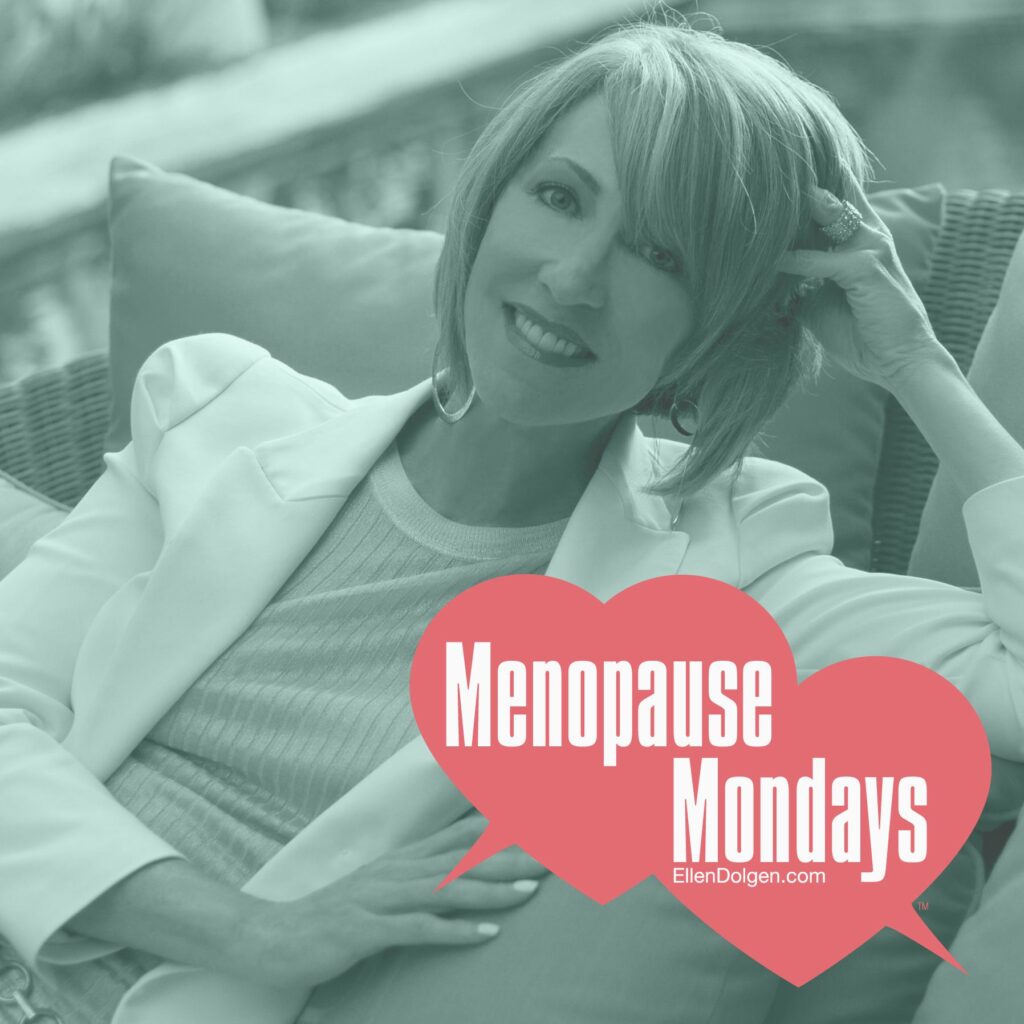An estimated 75% of postmenopausal women experience hot flashes. Between 60%-80% of patients with breast cancer suffer from them due to chemotherapy or estrogen stripping medications. Hot flashes can last an average of seven years and many women even continue flashing longer.
Menopausal women can be a very hot group! Your days and nights may involve lots of sweat sessions and hot flushes. This is only temporary. Trust me, there are dripless days in your future.
First and foremost, make sure you have a wonderful Menopause Specialist who will help develop an individual program for you that fits your personal health needs. If you don’t have Menopause Specialist, I have some helpful tips on how to find one here.
Hormone therapy (HT) is the most effective treatment for hot flashes (VMS vasomotor symptoms) according to the 2017 North American Menopause Statement on hormone therapy. Hormone therapy, also, is the most effective treatment for vaginal symptoms called, genitourinary syndrome of menopause (GSM). I know, these names are awful! Symptoms for GSM may include genital dryness, burning, and irritation. You can experience uncomfortable sexual symptoms from the diminished lubrication and pain such as urinary urgency, painful urination, and recurrent urinary tract infections (UTIs).
It is important to note that hormone therapy has been shown to prevent bone loss and fracture, too.
Here are some other key points from the 2017 NAMS statement about HT:
“Ongoing use of systemic HT (pills, patches, etc) by healthy women who initiated therapy within 10 years of menopause onset and without new health risks likely has a safety profile more favorable than that for women initiating HT when aged older than 65 years, although limited long-duration data are available.
Hormone therapy does not need to be routinely discontinued in women aged older than 60 or 65 years and can be considered for continuation beyond age 65 years for persistent VMS (hot flashes), QOL (Quality of life) issues, or prevention of osteoporosis after appropriate evaluation and counseling of benefits and risks. Annual reevaluation, including reviewing comorbidities and periodic trials of lowering or discontinuing HT or changing to potentially safer low-dose transdermal routes, should be considered.”
Sadly, many women are needlessly suffering from hot flashes and insomnia from night sweats, but have the improperly reported info from the 2002 Women’s Health Initiative still playing repeatedly over and over again in their brain. They are still fearful that the risks don’t outweigh the benefits for HT. Please speak to your Menopause Specialist so you can be informed of the updated information on HT. It is so much better to base your healthcare decisions on fact instead of fear.
If you are a cancer survivor, of course, your options may lean toward non-estrogen based therapy. However, for GSM (vaginal symptoms), the latest 2017 NAMS statement recommends low-dose vaginal estrogen in consultation with your oncologist.
Here are a helpful list non-hormonal options to discuss with your Menopause Specialist:
- Selective Serotonin reuptake inhibitor (SSRI)- these are antidepressants that are prescribed for hot flashes.
- A low-dose mesylate salt of paroxetine (LDMP)
- Stellate Ganglion Block – An anesthetic is injected into a nerve cluster in the neck.
- Gabapentin – This drug is primarily used for seizures.
- Clonidine (Catapres, Kapvay, others) – Typically used for high blood pressure.
In the meantime, there are things that you can try on your own such as:
- Mindfulness-based stress reduction – I meditate 20 min each morning. It calms and centers me. I highly recommend it!
- Over the counter supplements and herbal therapies such as black cohosh may be helpful. Remifemin was mentioned by the Oncologist’s from Yale in my blog on menopause and cancer.
- Weight Loss – Helps with everything. Remember that excess belly fat can increase the cancer risk in older women.
- S-Equol- an intestinal bacterial metabolite of the soybean isoflavone daidzein
- Exercise -Is good for our overall health.
- Smoking – No butts about it- just quit!
- Cut back on your alcohol, coffee, and spicy foods – do one at a time so that you know what works and what doesn’t.
- Acupuncture – Some women tell me that it helps them. If your acupuncturist also gives you a handful of herbs to take, be sure to ask your acupuncturist to give you a list of what is in those herbs. Run that list by your Menopause Specialist BEFORE taking them.
- Dress for a hot flash – Dress in loose layers so that you can easily peel off a layer or two when you start flashing. It’s always best to stick with breathable fabrics such as cotton.
Remember: Suffering in silence is OUT! Reaching out is IN.
For more great tips on how to find a menopause specialist and deal with menopause, download my free eBook: MENOPAUSE MONDAYS the Girlfriend’s Guide to Surviving and Thriving During Perimenopause and Menopause.
Be sure to sign up for my fun YouTube Videos!





